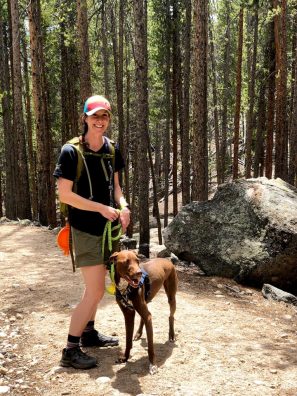I don’t often talk about me being a Brain Injury survivor, because although what happened was, by definition, a Brain Injury, I tend to compare it to others. I feel like mine is perceived as less severe than others (it’s an “invisible disability”), so, I don’t. But, yes. Technically, I’m a survivor. In 1997, while taking a break from studying for finals in college, a few friends and I went out on the green to “toss the ball around.” It was winter. It was night. It was probably not a great idea. I was not throwing the ball around and I was most certainly not paying attention. I was just all up in the middle of everything. There was no rhyme or reason to the throws. They were my friends. Throwing the ball. And I ended up being the pickle in the middle. I remember hearing “Lisa! DUCK!” But, it was too late. The ball was inches away from my face when I saw it. And I was out. I think I was able to make some mumbling sounds as I was carried up to my dorm room, but I don’t remember much.
I ended up in the medical center’s Emergency Room. Again, I still don’t remember much about what happened there. Doctors. Nurses. I honestly don’t remember if I got a CT scan or how long I was there or anything else. I vaguely remember them saying something about how my winter hat helped because it cushioned the blow or something? At some point, they sent me back to my dorm room with the instructions of “making sure someone watched me sleep and woke me up every so often, etc.” as those were the rules in 1997. I was supposed to have a job interview the next day. I couldn’t go. Finals week was three days later. I took them. No one told me I shouldn’t or could have accommodations or could wait and take them later. There were NO instructions given on how to proceed with a severe concussion. In fact, at the time, it wasn’t even labeled as a Brain Injury. I struggled. I had migraines and significant trouble sleeping for a long time. I had some emotional lability. I still get migraines. And shortly after that severe concussion, or Brain Injury, if you will, the seizures that we thought I had “grown out of” when I was a child came back. I was re-diagnosed with epilepsy and was put back on medication. I’m still on medication, but I’m grateful that my seizures are well-controlled now. It’s hard to say if the recurrence of the seizures was related to the brain injury, but it’s very likely. Epilepsy is also something that I will now deal with for the rest of my life.
Last year, I did the Summit Hike for the Pikes Peak Challenge and it was such an amazing experience! I loved hiking alongside people defying whatever odds people had given them and meeting their own individual goals. I think it reminds you that you can always challenge yourself to just take one. more. step. And you never know… you could end up on the top of a mountain!
I am hiking for Outdoor Mindset. We’re an outdoor focused community for people affected by neurological challenges. It’s a super cool and fun organization with a lot of awesome people involved. I’ve been an outdoor “ambassador” with OM for a couple of years now, and love the mission and what the organization stands for.
Brain injury survivors must fight through unimaginable mental and physical challenges of their invisible disability. There isn’t a cure for brain injuries; they don’t grow back like hair or fade like scars. Dealing with the effects is a lifelong, day-in-day-out process. While no two brain injuries are the same, they do have a few things in common. They don’t fade or mend, they are always present, requiring brain injury survivors to navigate in a brand-new world as they fight to establish a new normal.
The Brain Injury Alliance of Colorado (BIAC) is the go-to resource for help and services for survivors of an injury to the brain, their families, and providers.
Funding is critical for BIAC to continue supporting survivors in our state, which is why I am reaching out to family and friends to share my exciting commitment to participate in the 2020 Pikes Peak Challenge Barr Camp Hike. The Pikes Peak Challenge is the ultimate test of our own mental and physical boundaries as we raise money and awareness for those who have suffered an injury to the brain. Their daily challenges surmount our own. When I finish, I will have hiked 13 miles and 3,800 vertical feet to the beautiful Barr Camp at 10,200 feet before retracing my tracks back down to the Trailhead to join fellow brain injury supporters.
Last year $185,000 was raised to support the Brain Injury Alliance of Colorado! This year we hope to surpass that number. Can you help us reach our goal?
Please donate now on my fundraising page and together we can make a huge impact for brain injury survivors and the entire brain injury community.
-
 Lisa Avram
Lisa Avram
$20.00 -
 Renee Kleck
Renee Kleck
$10.00 -
 Miriam Vigil
Miriam Vigil
$20.00 -
 Amy Boudsady
Amy Boudsady
$20.00 -
 jeff kost
jeff kost
$50.00 -
 Elizabeth Diffee
Elizabeth Diffee
$30.00 -
 Anonymous
Anonymous
$20.00 -
 Christine Kochevar
Christine Kochevar
$40.00

